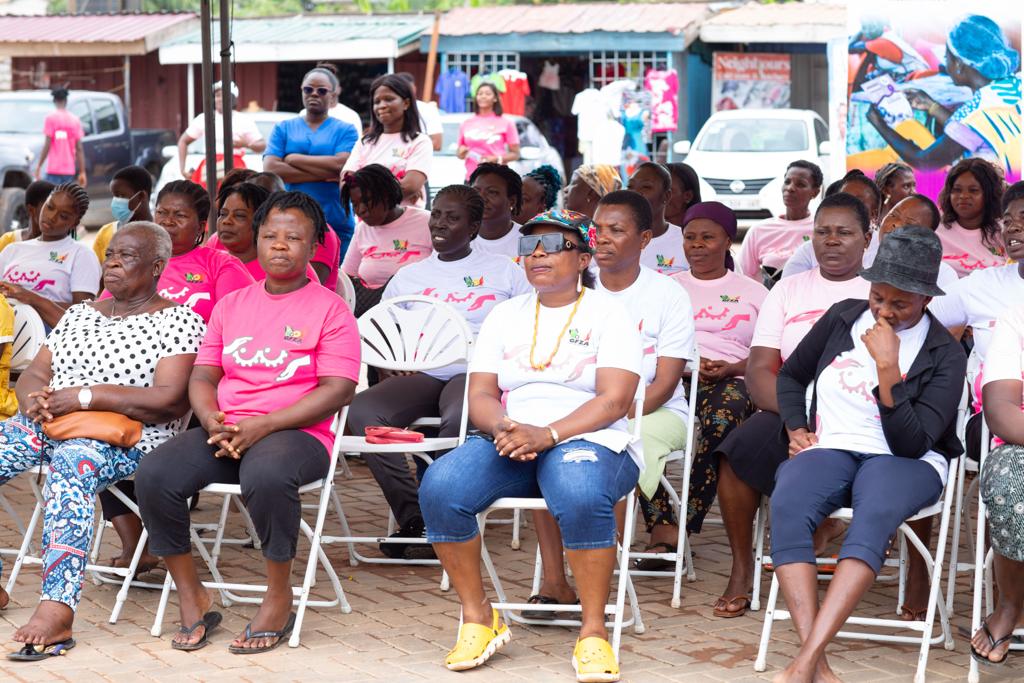By Patrick Ofoe Nudzi
Accra, Oct. 26, GNA – Mr Mike Oquaye Jnr, Chief Executive Officer (CEO) of the Ghana Free Zones Authority has supported members of Taifa-Burkina community with breast cancer screening.
The event which drew scores of people, including market women, civil servants, students, and other societal groups, was aimed at helping build a healthy society with his widow’s mite.
The whole of October is deemed as breast cancer awareness creation month and the call from the medical team at the screening was for people to adopt an early detection approach.
In an engagement with the participants, Mr Oquaye urged them to be devoted to their health needs, adding that they could only transact their businesses and achieve their goals when they were strong and healthy.
He said it was good to reach out to the various communities and so he needed to serve his residential community, Dome Kwabenya Municipality and the La Dade Kotopon Municipality where the screening had gone on concurrently.
Speaking in an interview with the Ghana News Agency (GNA), Mr Oquaye said: “Last year, when we had the screening in the two constituencies, we had 16 people with the condition, one died just last week, two had operations and they were healed because of early detection which is the main message we are preaching about the breast cancer.”

“These are the kind of stories we want from health outreaches like this. This is the essence of politics where you help the community by using your position as a leader, politician, assembly member to champion progress and the people’s welfare,” he said.
Dr Selorm Kutsoati, Municipal Director of Health Service, in her remarks, said women must make it a lifestyle to regularly check their breasts for the symptoms and treatment and that men to also do the same.
She said the notion that the sucking of women’s breasts by men could prevent breast cancer was false, however, the only thing that would prevent a woman from having breast cancer would be if a baby she had produced sucked her breast.
“As a woman, you know your breast very well and if there is anything new or changes in your breast you can feel it. When you are 40 years and above you must go to the hospital for a mammogram for further checks,” Dr Kutsoati added.
GNA